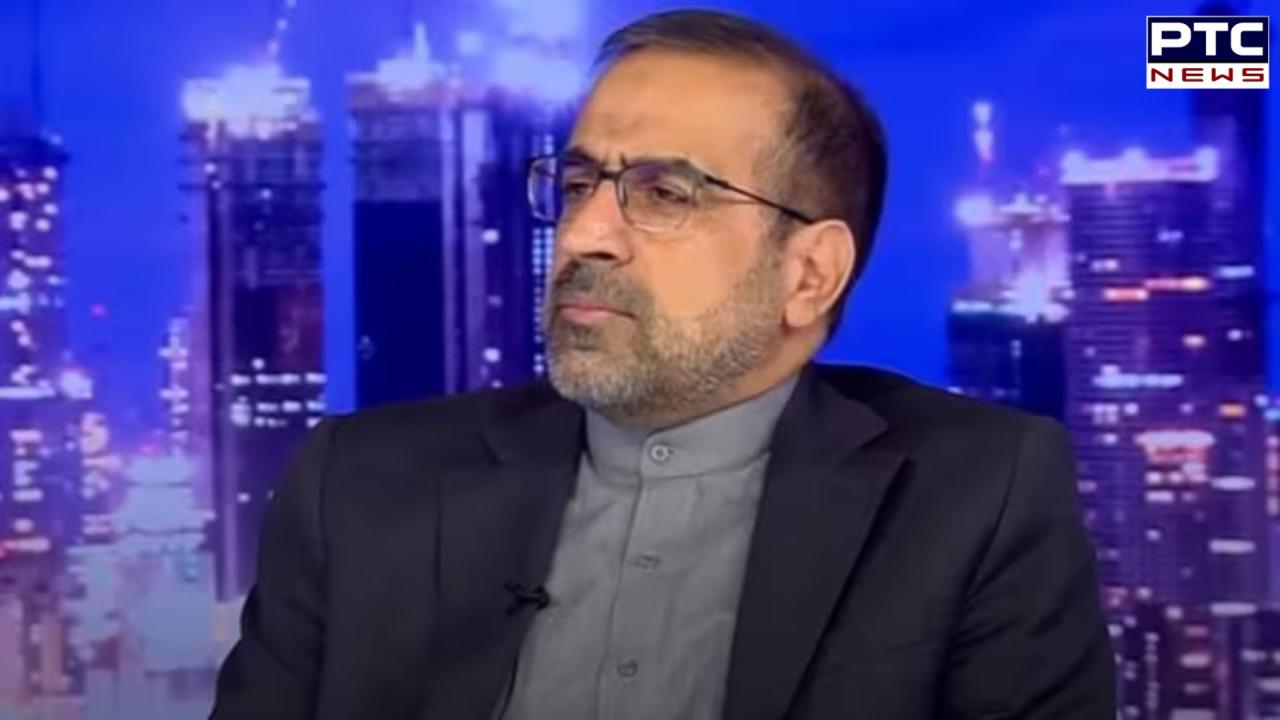- February 22, 2025
- Updated 2:22 am
Envoy warns Israel: Today’s Iran is not the 1981 version during Saddam’s invasion
PTC News Desk: Iranian Ambassador to India, Iraj Elahi, spoke out on Friday regarding Iran’s missile strike on Israel, emphasising that it was a strategic move aimed at promoting stability in the Middle East and issuing a warning of potential reprisals if Iran is attacked. In an interview, Elahi asserted that today’s Iran is significantly different from the Iran of 1981, when the nation was invaded by Iraqi dictator Saddam Hussein.
“The current conflict is characterised by technological warfare. We have learned from our initial operation in April and have now deployed next-generation missiles. If Israel attacks us, we are prepared to use even more advanced missile systems,” Elahi stated.
On October 1, Iran launched 200 missiles at Israel as retaliation for the killing of Hezbollah leader Hassan Nasrallah and the assassination of Hamas leader Ismail Haniyeh in Tehran. This missile strike follows an earlier attack in April, during which Iran also targeted Israel after an incident involving its consulate in Syria; however, most of those missiles were intercepted.
Elahi noted that Israel has threatened retaliation, raising fears of a broader conflict in the already volatile region. There is speculation that Israel might target Iranian military or nuclear sites.
The ambassador warned that Israel would refrain from actions that could trigger a significant Iranian response and emphasised that Iran has achieved self-sufficiency in its defense capabilities.
“They will not act in a way that forces Iran to retaliate. We are prepared to defend ourselves and hope that either Israel’s advisors or the US can dissuade Israel from targeting our nuclear facilities,” he said.
Elahi claimed that Iran’s missile strike had already inflicted damage on Israeli military facilities, despite the Israeli government’s assertion that the impact was minimal. “Our missile attack has contributed to regional stability, and Iran’s intention was to create a deterrent,” he remarked.
He characterised Israel as an “occupying power” and stated that Iranian strikes on Israeli air bases had reduced Israel’s military capabilities. Elahi also claimed that Israel’s renowned ‘Iron Dome’ defense system failed to intercept the Iranian missiles.
“Iran’s military strikes have impaired the capabilities of this illegitimate regime, hindering its ability to conduct invasions and attacks on Gaza,” he explained.
Furthermore, the ambassador criticised the Netanyahu administration for disregarding humanitarian principles and ethics during its military operations in Gaza. He noted that Hassan Nasrallah, the recently killed Hezbollah chief, had supported a ceasefire to end hostilities in Lebanon, which had been escalating due to Israeli airstrikes.
“Both sides were nearing an agreement for a ceasefire, but Netanyahu has destabilized the region. He is trying to save his political career by prolonging the conflict. Nasrallah advocated for a ceasefire,” Elahi stated.
Regarding Hezbollah, the ambassador described it as a political organization focused on liberating Lebanese territories currently under Israeli occupation. He asserted that “Israel is the primary source of tension in the region and must halt its expansionist policies.”
Also Read: Afghanistan cricket star Rashid Khan ties the knot, wedding venue video goes viral
Recent Posts
- Crown of goddess Kali, gifted by PM Modi, stolen from temple in Bangladesh
- Hezbollah leader survives assassination attempt amid Israeli strikes that kill 22 in Beirut
- ਕ੍ਰਿਕਟ ਦੇ ਬਦਲੇ ਨਿਯਮ, ਹੁਣ ਇਸ ਕੇਸ ‘ਚ ਦੁਬਾਰਾ ਨਹੀਂ ਮਿਲੇਗੀ ਬੈਟਿੰਗ, ਮੰਨਿਆ ਜਾਵੇਗਾ
- ਸਚਿਨ ਤੇਂਦੁਲਕਰ ਦੇ ਬਰਾਬਰ ਪਹੁੰਚੇ ਜੋ ਰੂਟ, ਪਰ ਵਿਰਾਟ ਦੇ ਇਸ ਰਿਕਾਰਡ ਤੋਂ ਅਜੇ ਵੀ ਦੂਰ
- Ratan tata death: ਸਿਰਫ ਵੋਲਟਾਸ ਹੀ ਨਹੀਂ, ਸਵੇਰ ਤੋਂ ਰਾਤ ਤੱਕ ਤੁਹਾਡਾ ਕੰਮ ਟਾਟਾ ਦੇ ਬਿਨਾਂ ਨਹੀਂ ਚੱਲ ਸਕਦਾ
